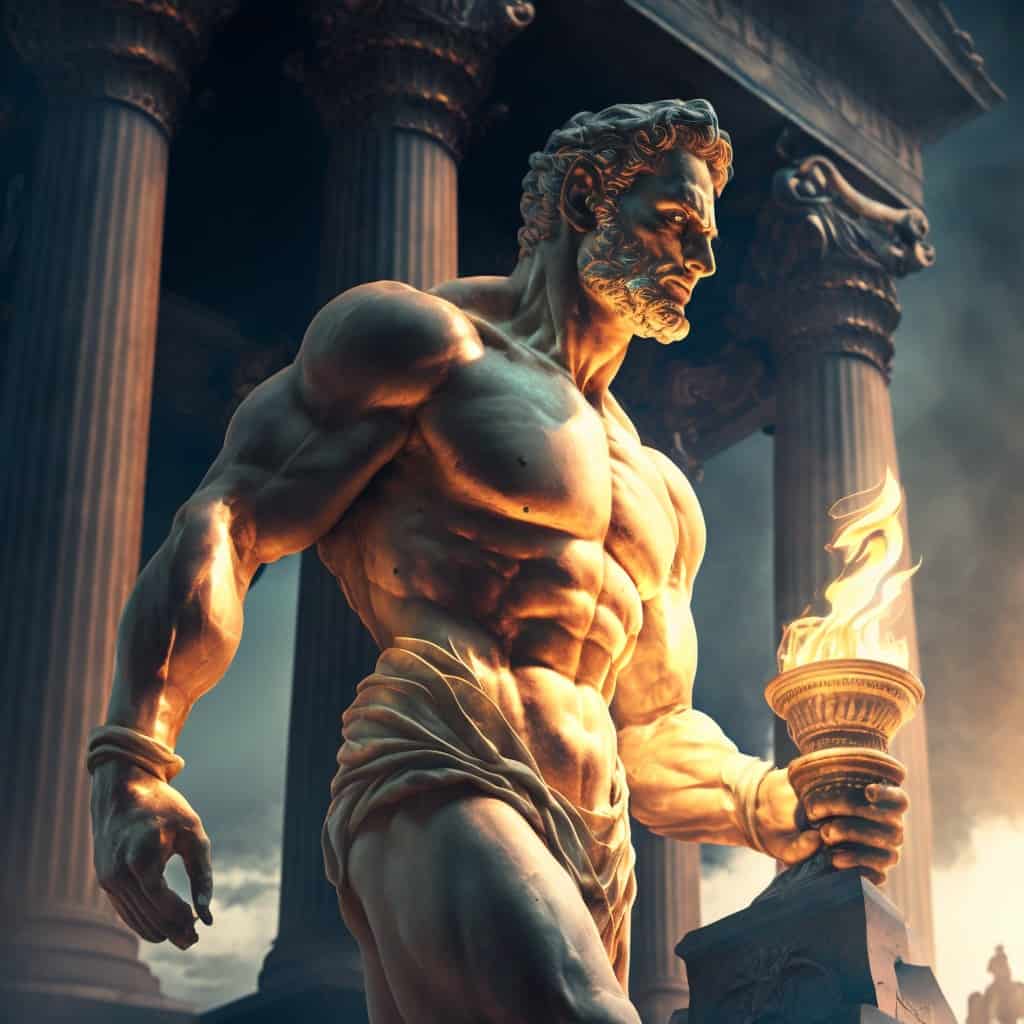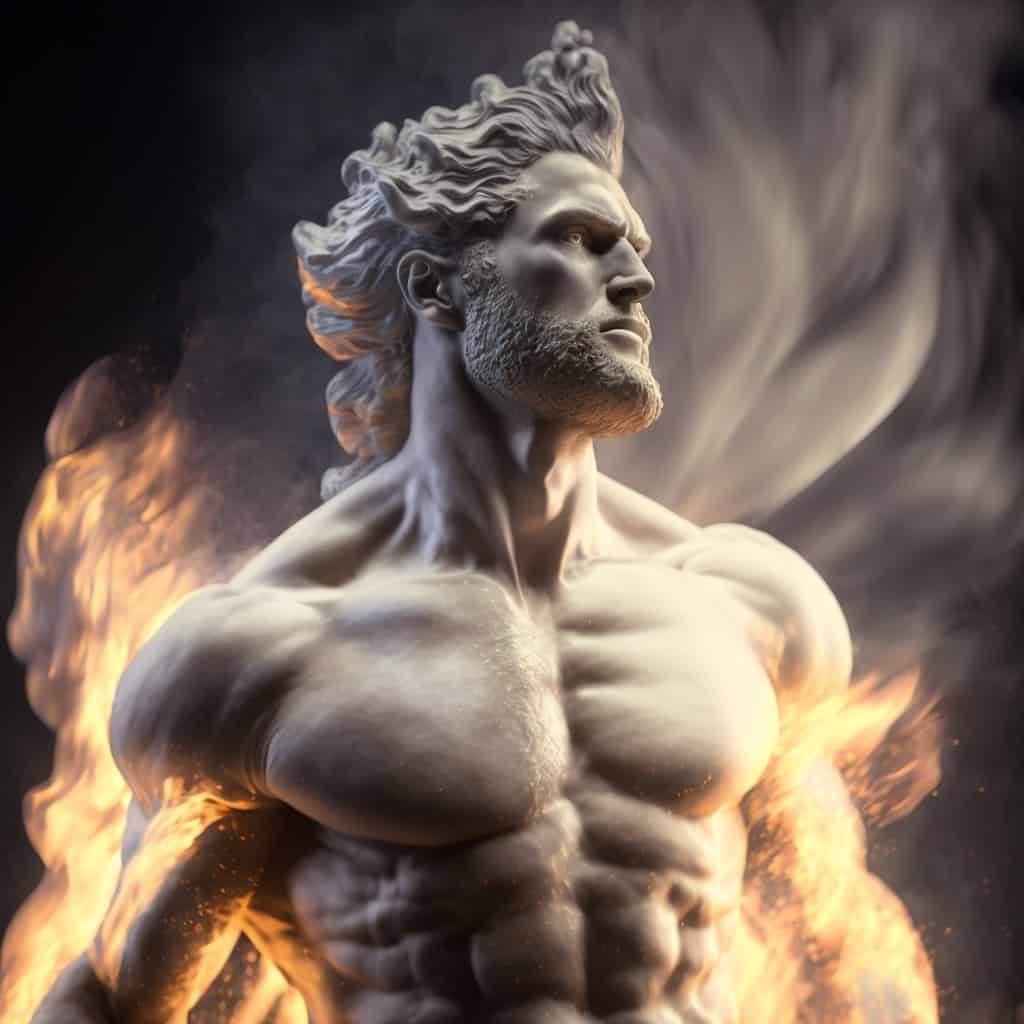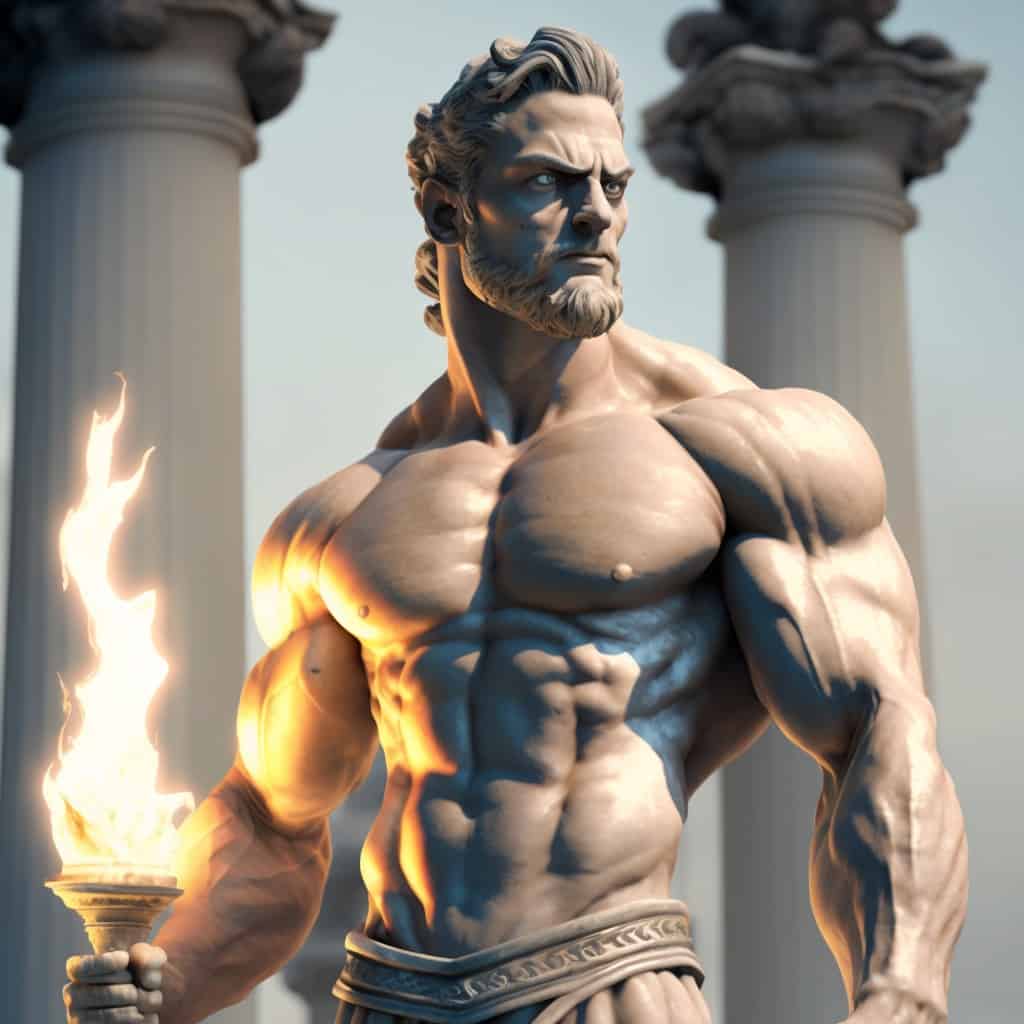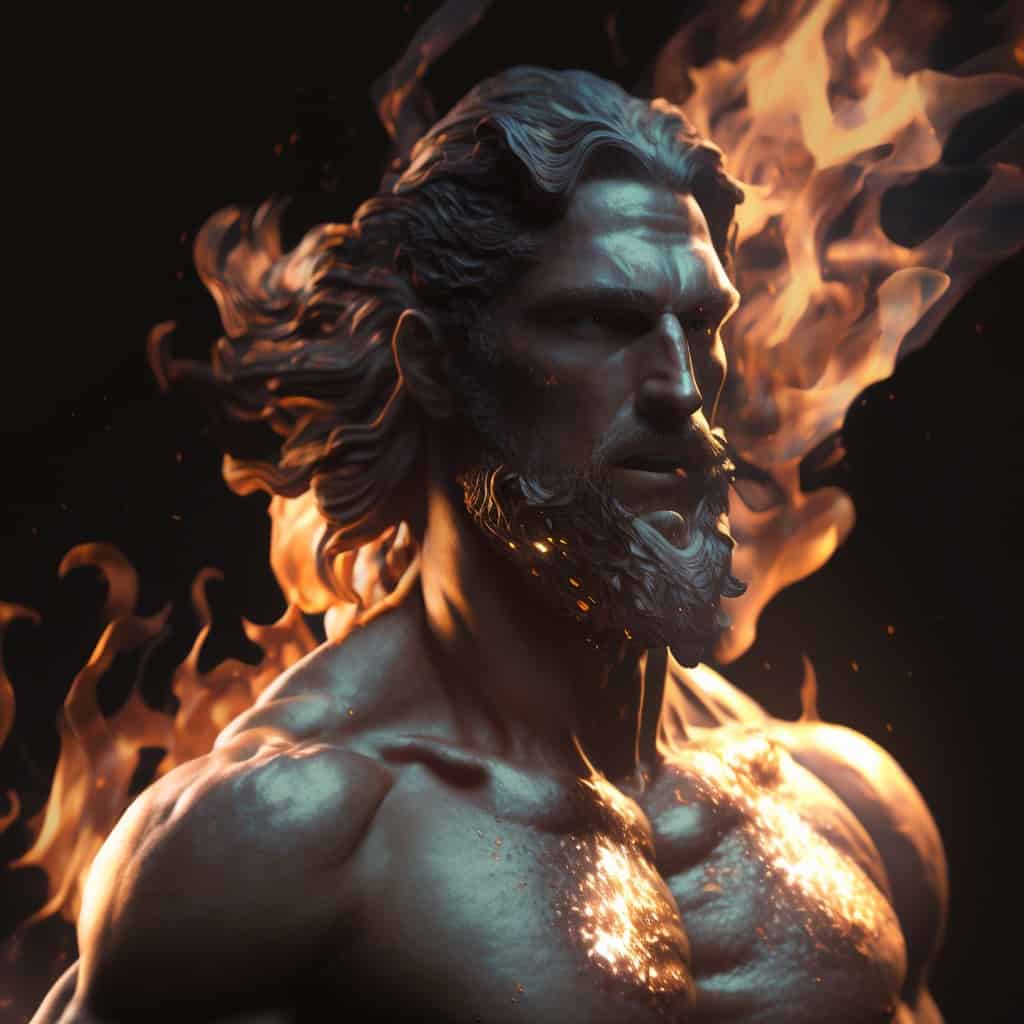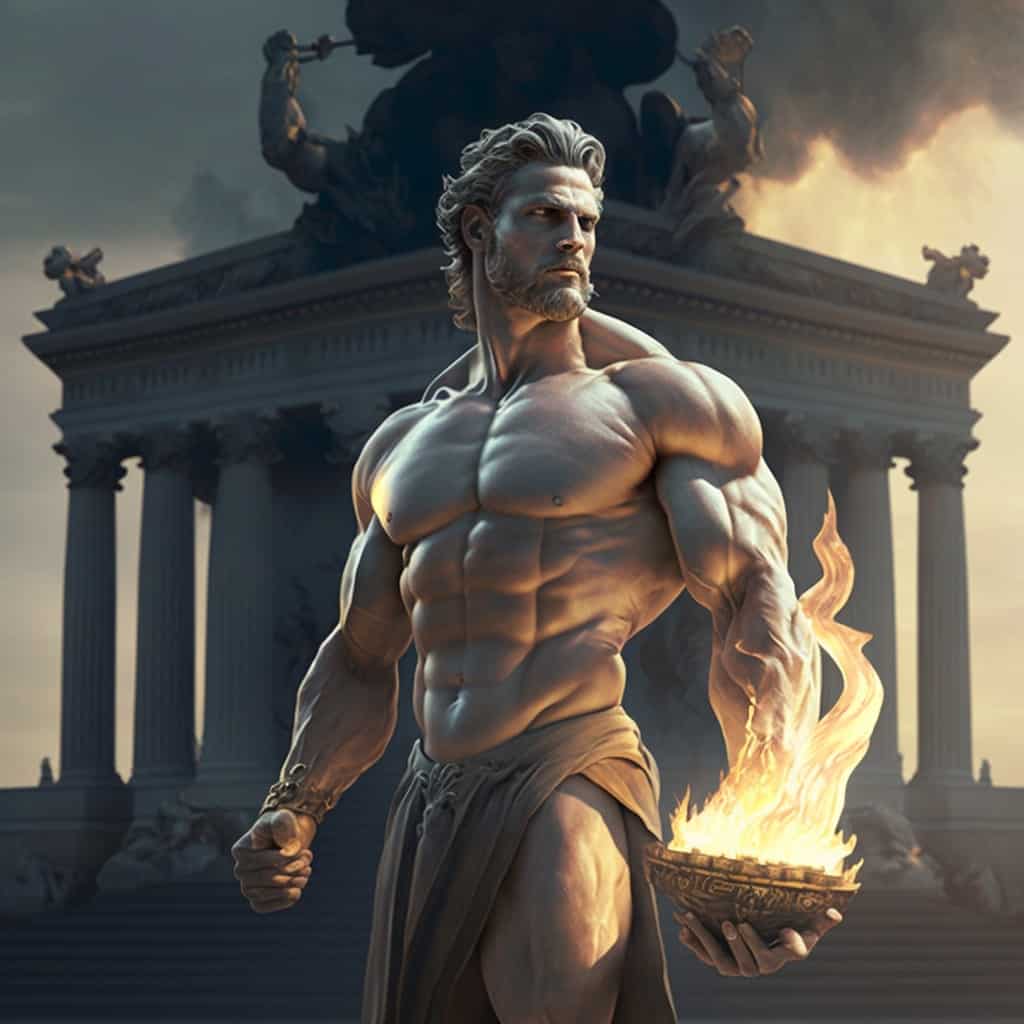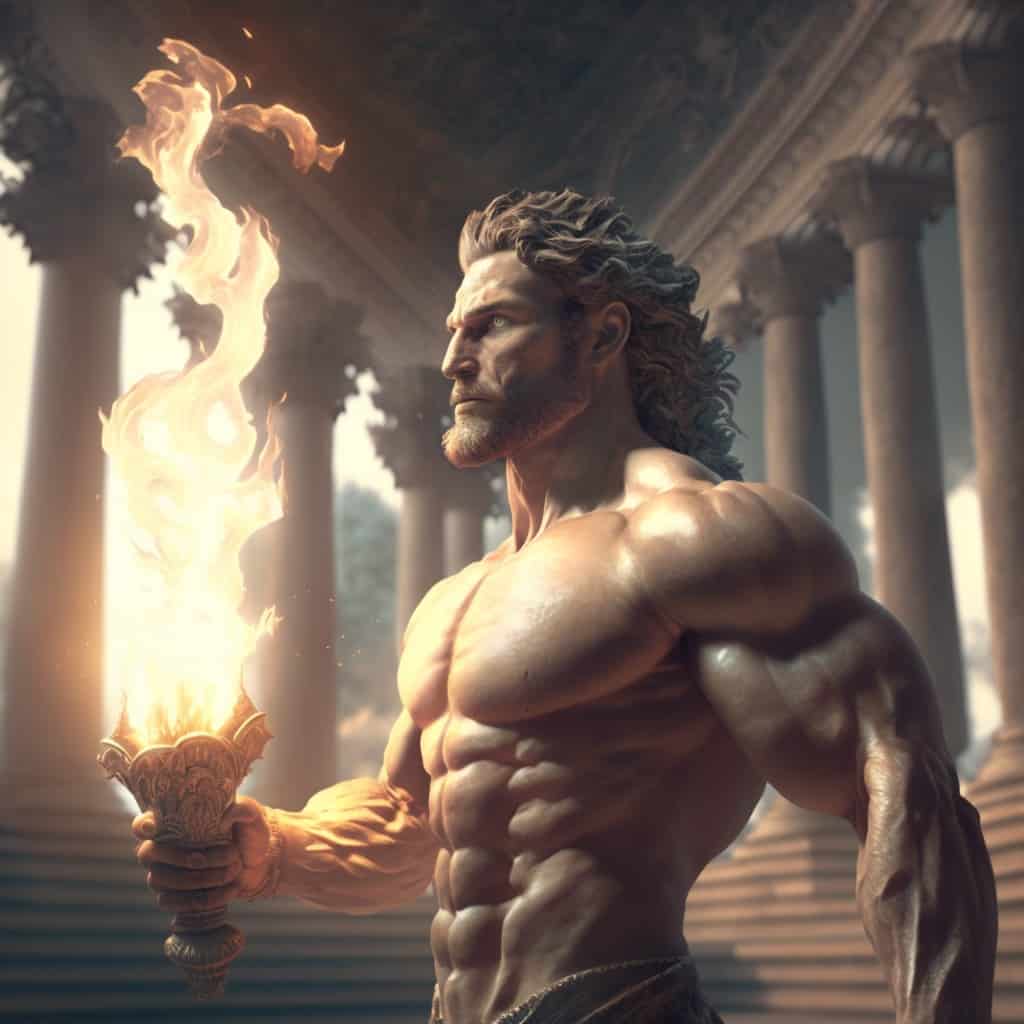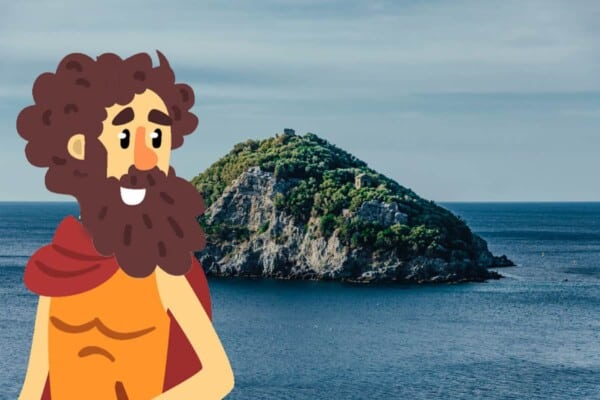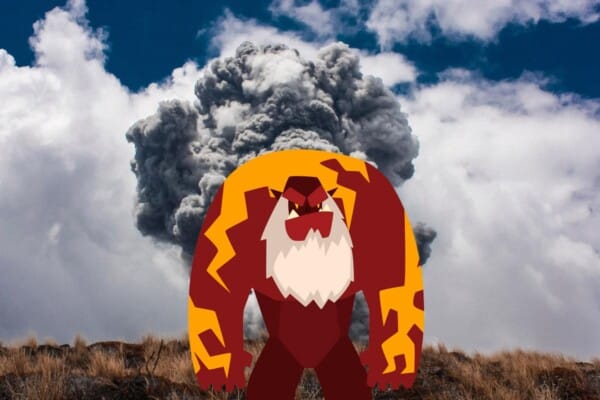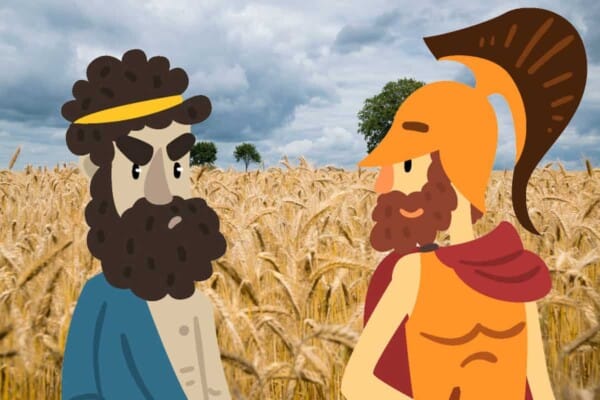As humans, we tend to look at each other and compare our worst days with everyone else’s best days. That’s just how we function as a society.
We look at what someone else has on their feed, and we stare at our own empty rooms as we try to understand why we can’t have the same things as them.
But what a lot of these people don’t realize is the fact that we take a lot of what we have for granted, and not only that but we tend to forget that not everybody’s perfect.
You shouldn’t base your whole life around one moment in your life, instead you should look at everything else that made you the person you are today.
With that being said, there is one important mythological figure that is in the exact same hole as you are.
This God has done a lot in his life, he has a lot of names and achievements under his belt, and yet his whole life he has been associated with one sin he committed.
Funny enough, this sin also ended up serving as the gift of life for us. But who is this God and more importantly, what did he do to deserve being punished for all eternity by Zeus?
Let’s find out together as we go over everything that there is to know about Prometheus, the Titan God of Fire:
Who Is Prometheus in Greek Mythology?
Prometheus was the son of Iapetus and Clymene according to most experts, but in some separate takes on his origins the Titaness Themis took the role of his mother.
By far the most popular tale in which Themis is regarded as his mother has got to be the tragic play Prometheus Bound, which was created by the Greek playwright Aeschylus.
In very few tales, he is even depicted as being the son of the river Titan Eurymedon and Hera, the Queen of the Gods and Zeus’s lover. The rest of his family includes his brothers Atlas, Epimetheus, Menoetius and Anchiale.
These gods first showed up in the old Titanomachy tale in which Iapetus, Menoetius and Atlas all decided to support Cronus, the old King that ruled over the Gods in ancient times.
Cronus was no pushover, but he was unlucky enough to be going against Zeus and his supporters, amongst which Prometheus was listed.
After Zeus won the war, he celebrated by rewarding all of the Gods that supported him during his battles.
Prometheus’s Role in Greek Mythology
Prometheus has taken the front stage in a lot of different myths and legends over the years, and in most of these he has been depicted as being very forward-thinking, self-serving and courageous.
Sadly, these are also the reasons as to why he gets himself in trouble most of the time too, and as such it’s pretty much a given that every time he shows up in a story, he ends up being punished for these traits.
During the Titan War tale though, he does take a bit of a backseat to other characters, only to later on step back up on the front stage when Zeus asked for a trustworthy individual to help craft the first men.
Interestingly enough though, even though he created the first men at Zeus’s command, he would later on end up betraying Zeus for these same men.
This affection that he garnered for his creation would also lead him to trick Zeus at Mecone and then betray him altogether by stealing the fire and bringing it to the first men.
Prometheus’ son also has a very important role to play in Greek mythology, as he, alongside his mother, the Oceanid Pronoia, would end up running away from Zeus and just barely surviving the flood that was supposed to destroy all of humanity as a whole.
What Does Prometheus’ Name Mean?
When it comes to the etymology of his name, Prometheus is unique in that he is meant to be a parallel of his younger brother, Epimetheus.
We can tell that this is the truth simply based on the fact that Prometheus’ name uses the prefix “pro” which means “before” while his brother uses the prefix “epi” which means “after”.
This is important to note because experts believe that this was a reference to the fact that Prometheus embodied the idea of forethought while Epimetheus embodied the idea of the “afterthought”.
What Is Prometheus the God Of?
If you’ve followed any of the myths in which Prometheus took the leading role, chances are you already know what he is known for.
But, not that many people know that he actually also doubles down as the Titan God of Fire, as well as the God of Forethought and that he used to be the crafter of the Gods before Hephaestus made his way into the pantheon.
At the same time, it should be known that Prometheus is also referred to as the patron god of human advancement.
This is because he was the one to steal the fire from the Gods and gift it to the men that needed it to survive through the cold nights.
Without this fire, the early man could not have evolved because there was no light to guide them and they could barely survive on their own in the cold.
But, through this act Prometheus managed to give humanity a chance at life, a chance at improvement and of course, a chance at becoming a force that even the Gods would be wary of.
So, while Hephaestus is more often than not referred to as the God of Fire amongst the Greek Gods, Prometheus also shares this same title.
It should also be mentioned here that Hephaestus was pretty much hidden away from the spotlight most of the time, until he was brought to light by Dionysus.
He was pretty much forced into taking care of the fire and making sure that it was kept in check as well as to guide Greece’s artisans.
But that’s enough about Hephaestus, let us now go over some of the most important stories that starred Prometheus in the Greek mythos.
The God of Foresight and Forethought
First and foremost, let us go over the first major myth in which Prometheus put on the main character cloak.
We already mentioned it, but let’s still go over the Cronus and Zeus war so that we can better explain why Prometheus played such an important role in the battle.
Cronus was supported by most of the Titans at the time, with the exception of two of them. Prometheus was one of them, and he immediately jumped the wagon, deciding not to support Cronus after all. But why did he do that?
Did he hate Cronus? Far from it. Did he hate his family or the other Titans? Not as far as we can tell. Did he love and support Zeus that much? Quite the contrary actually.
Then why would he betray his own people and go to support the insurgency? It’s simple, really, he is the God of Foresight and Forethought, so he knew that Cronus would lose.
So, he took a leading role on Zeus’ side as he faced off against the other titans on Mount Othrys, and before long they successfully pushed them back enough to call this a victory.
It should also be mentioned here that Prometheus wasn’t the only Titan to fight against Cronus, as his younger brother Epimetheus also refused to go to war alongside his kin.
Ten years later, Prometheus and Zeus’ forces finally defeated Cronus as he now served as the new supreme deity of the cosmos, in Cronus’ stead.
The Creator of Man
After his blazing victory, Zeus decided to start allocating different responsibilities to his allies. This is important to note, as even though Prometheus and Epimetheus didn’t directly support him in his battle by fighting alongside his troops, they didn’t support Cronus either.
As such, they were allowed to live alongside the other Gods and they were not punished like their brothers and sisters.
Instead, they were given the job to bring life to our planet, which was vacant at that point in time. So, the two brothers would then craft the animals and men out of clay, only for Zeus to breathe life into them.
Prometheus and Epimetheus were also the ones tasked with giving the creations their names, as well as making sure that they had the characteristics that all the other Greek gods and goddesses had set up for them.
For some unknown reason though, when it came to giving the creatures traits that would help them survive in the wild, Epimetheus did most of the work.
This was a bit of a problem because he is the God of “Afterthought”, so he never even considered to make sure that there were enough characteristics for every creature there.
This is how man ended up without any way to survive on his own. Zeus also refused to give the creatures more characteristics, leaving the early man in the wilderness unprotected and incapable of making it on his own.
Prometheus looked down upon man and he wept, knowing that it wouldn’t be long before his creation would cease to exist.
So, he decided to sneak into the workshops of gods and steal more characteristics to give to his favorite creation.
This is how he came upon wisdom and reason in Athena’s workshop. He stole these traits and quickly allocated them to the early man in secret.
The Inventor of the Sacrifice
Knowing that in doing so, he would rack anger Zeus, Prometheus decided to devise a plan that would appease the God of Gods.
Since he is the God of Foresight, he volunteered to teach man how to sacrifice creatures in the name of the Gods.
Reluctantly, Zeus accepted, but little did he know that Prometheus was not entirely done with his plans and that he was getting ready to betray Zeus one more time for the sake of humanity. Before he could do any of that though, Prometheus arranged for the Sacrifice at Mecone to take place.
This is when Prometheus defiantly showed man how to trick the gods, as he made them cut up all the best meat from the bull and put it on one side and put all the bones and skin on the other. He would then have Zeus choose which of the two offerings is better suited for the God of Gods.
Knowing that Zeus would obviously pick the good meat though, he decided to cover the second pile in fat to make it more appealing to look at.
Zeus saw through this, but even so he chose the second pile just because he couldn’t help himself. As such, from this moment on, every future sacrifice would be made out of the second best parts of the animal.
The Gift of Fire
Realizing that he had been tricked by man, Zeus decided to take out his anger on Prometheus’ humans, stealing their fire away and leaving them in complete darkness.
Prometheus wouldn’t let this stand though as he decided to get revenge for his creation, devising his plan yet again to take on Zeus.
This time he snuck back into the workshops and he made his way into Hephaestus’ quarters. This is where he saw the holy ember of fire.
So, he picked up a fennel stalk that had an ember of fire in it and he quickly ran back to Earth to give it to his creation.
Once he got back to Earth, he taught man how to use the fire, and once he learned how to do it, man would never lack fire again.
Pandora’s Box
Seeing this blatant revolt from Prometheus, Zeus decided to take his revenge on man yet again, devising a plan so devious that even Prometheus couldn’t see it coming.
He called onto Hephaestus and he instructed him to create a new woman from clay, only for him to breathe life into her soon after.
The woman would be named Pandora, and she would end up marrying Epimetheus later on down the line.
Pandora carried a box which was full of something that she told Epimetheus could never be opened into this world.
But, before long Pandora herself couldn’t handle not knowing what was inside of the box, so she opened it and out of the box came all of the world’s ills.
The Imprisonment of Prometheus
Now that man had been properly punished by Zeus, he turned his attention towards Prometheus, as he was ready to test his loyalty once and for all.
He asked Prometheus to help him by telling him the details of a prophecy regarding Zeus’ downfall, but Prometheus refused.
Enraged, Zeus decided to punish Prometheus by chaining him to an unmovable rock on the Caucasus Mountains.
But that’s not all that Prometheus had to endure, as every day, an eagle known as the Caucasian Eagle would fly by and pluck out a piece of the Titan’s liver, before eating it in front of him.
Being a Titan and on top of that a very powerful god, Prometheus would not die from this alone, instead healing through the pain every day only for the eagle to pluck out the newly regenerated liver yet again.
Heracles and Prometheus
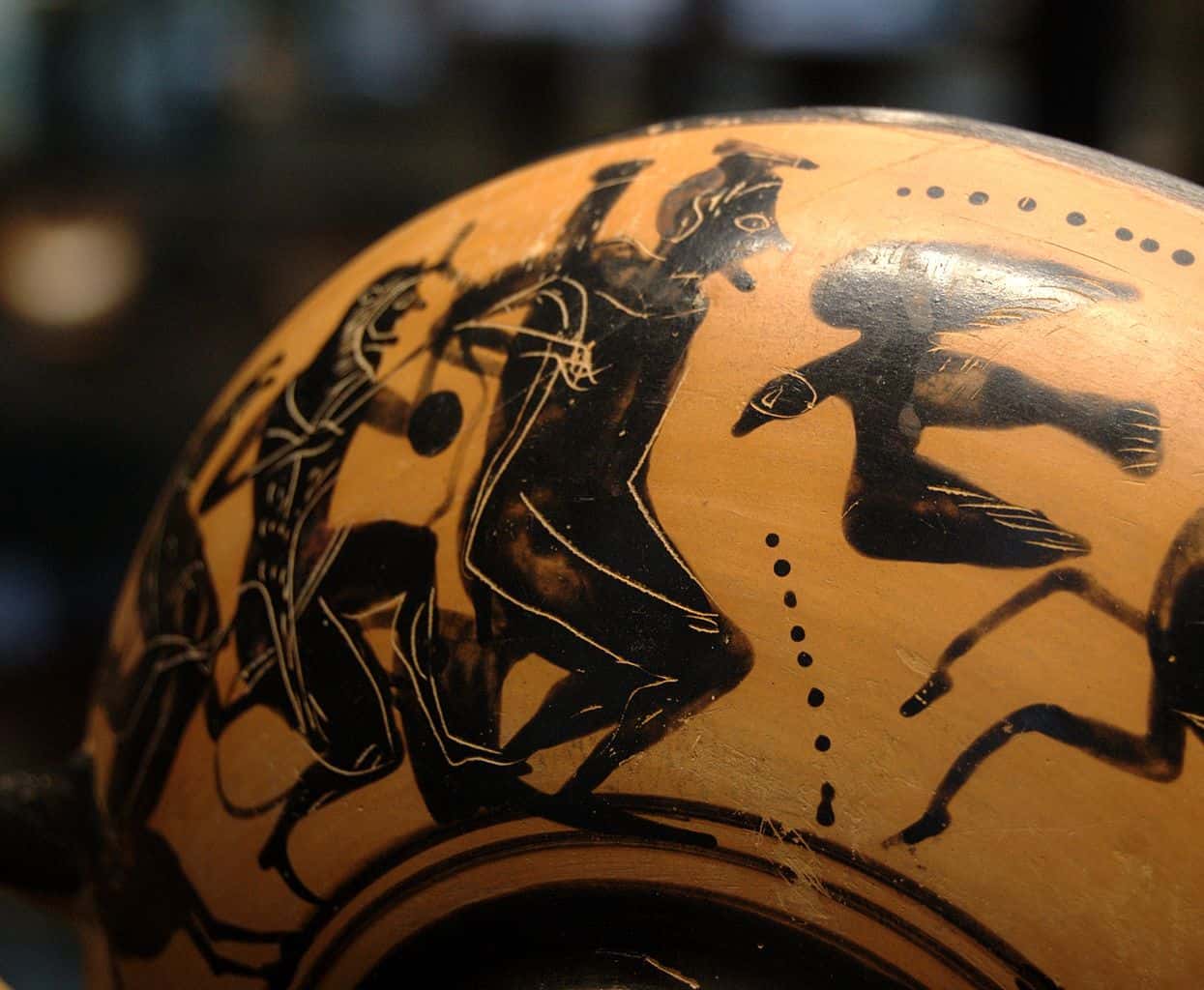
Prometheus would end up being imprisoned for quite a long period of time, all the way up until one man by the name of Heracles would appear in front of him.
He would make his way in front of Prometheus, demanding his assistance. Prometheus would tell him that there was no way for him to help him because of the eagle.
Upon hearing this, Heracles would then lay next to the God of Fire and Foresight and he would wait until the bird would spring forth.
As soon as he saw the eagle, Heracles shot it down, killing it with one solitary blow. After this, Heracles would also release Prometheus from his chains and allow him to stand on his own two feet yet again.
Zeus was not too pleased with these actions, but he could not muster the strength to punish his favorite son, Heracles, so instead, he decided to give Prometheus another chance to help him.
Prometheus reluctantly agreed, telling Zeus that the son of Thetis would become more powerful than him in the future and that he would be the one to cause his downfall if he continued to chase him down.
Zeus listened carefully to Prometheus’ warnings and he decided to do as he was told, allowing the son of Thetis to marry off to Peleus and avoid his demise after all.
After this point, Prometheus would live out the rest of his life away from the spotlight, staying as far away from the Gods and their wrath as possible.
He gave everything he had to mankind and thanks to him, humanity would finally be able to survive through the harshness of the nights on their own.
So, even though his story is definitely not one to be glorified, it is one of sacrifice and misery, in which one God stood against the King of Gods as he chose to fight for what he believed in.
Conclusion
The tale of Prometheus and his crime against the King of Gods is by far one of the most popular stories in the Greek mythos.
It serves as a reminder of the fact that sometimes, you need to fight for what you believe in, and even if everybody is against you, if your heart is in the right place, you will not regret your actions.
Contents
- Who Is Prometheus in Greek Mythology?
- Prometheus’s Role in Greek Mythology
- What Does Prometheus’ Name Mean?
- What Is Prometheus the God Of?
- The God of Foresight and Forethought
- The Creator of Man
- The Inventor of the Sacrifice
- The Gift of Fire
- Pandora’s Box
- The Imprisonment of Prometheus
- Heracles and Prometheus

